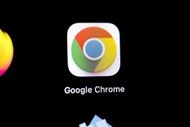A new product offered by OpenAI is the ChatGPT Atlas, an artificial intelligence-based web browser designed to integrate AI into daily browsing. The company aims to transform the way people search, read, and work online by integrating ChatGPT into the browser. Atlas can now be used on macOS, and a version on Windows, iOS, and Android is in development.
ChatGPT Atlas is not just a browser with AI features. Rather, it is constructed fully upon ChatGPT, and thus, all functions, including searching and writing, can be instructed by the AI. It eliminates the conventional address bar and allows users to communicate directly using questions or commands. It can be contrasted with the use of browsers such as Google Chrome and Microsoft Edge, which primarily rely on links and search results.
The company has also stated that Atlas is free to download, with some extra features being restricted to paid subscribers of ChatGPT Plus and Pro.
Main features of ChatGPT Atlas

ChatGPT Atlas is equipped with several tools that distinguish it from traditional browsers. One of the key features is that each tab functions as a ChatGPT chat window. Users can search, ask questions, or share links without leaving the dialogue. This enables individuals to communicate with websites in real-time.
The other important feature is context-sensitive help. The browser is capable of knowing what is on your screen and could summarize, compare, or rewrite information at will. Users can also select text on any website and prompt ChatGPT to explain, edit, or summarize text in real time. Such a feature will facilitate eliminating the need to switch between various tabs or applications to create small texts or conduct research.
Another feature is the ChatGPT sidebar, which represents a native assistant. You may ask questions regarding the page you are on, including ones such as finding definitions, background information, or related content. It is easier to browse and either learn or fact-check using this side panel.
Read More: “ENOUGH IS ENOUGH”: Internet reacts as OpenAI announces its own browser, ChatGPT Atlas
How does ChatGPT Atlas compete with Google Chrome and Microsoft Edge?

ChatGPT Atlas differs from Chrome and Edge because it was designed as an AI-first browser. Instead of focusing on search results and web links, Atlas focuses on generating direct answers and actions. This means that if a user asks a question, the AI responds immediately instead of displaying a list of web pages.
OpenAI also included an Agent Mode for paid users. This feature enables the AI to autonomously complete tasks such as searching, booking trips, comparing products, or drafting responses. It acts like a personal digital assistant that can take action across the web. This could change how users interact with the internet by transforming browsing into a conversational experience instead of a manual process.
OpenAI has also partnered with Shopify, Etsy, Booking.com, and Expedia to bring more integrated shopping and travel options within Atlas. These partnerships enable the AI to find and compare products or trips directly within the browser.
